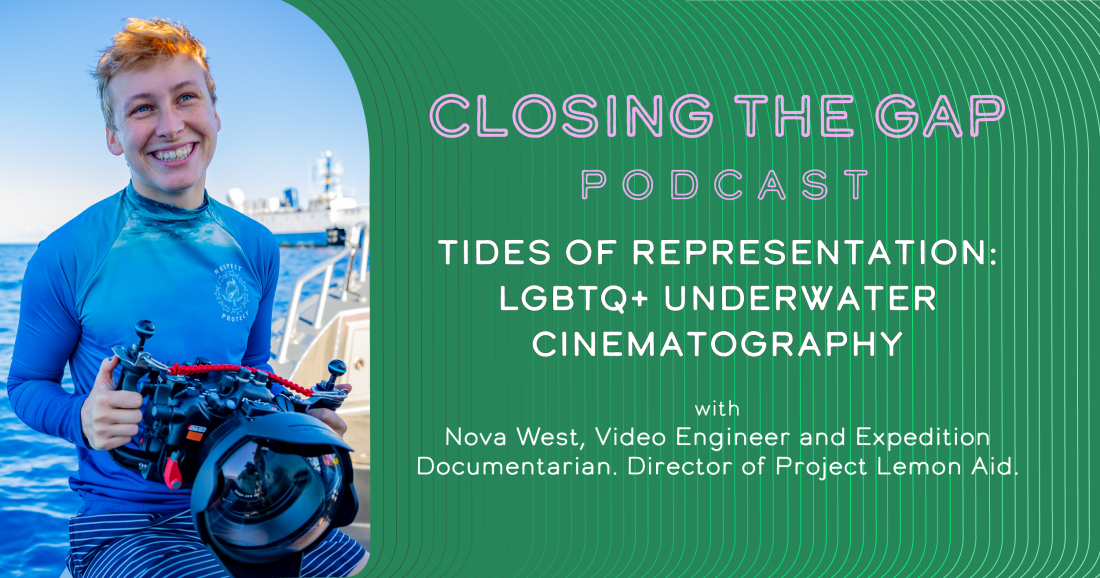CTG: Nova, would you tell us a bit about what you do for a living?
What kinds of education and training did you pursue to start working in this industry?
How did you become interested in filmmaking and what inspired you to pursue it?
What do you think young women and gender minorities should know about being an expedition documentarian? How can this help them as they prepare for the workforce?
NW – “My biggest takeaway is to know that you have a place in this industry. Growing up, I had never seen someone like me in this field, so I had to become the person I needed when I was younger. Sometimes you have to forge the path for others, which makes it all the more worth it to chase after your dreams. Chase your passions and let your imagination run wild. Don’t ever let anyone tell you you can’t do it.”
What advice can you give to young women and gender minorities who may be trying to navigate a career path similar to yours?
NW – “Reach out! Ask people who are doing what you want to do how they got there and what led them down that path. It looks different for everyone, but your network is so important to gaining opportunities, skills, and further connections.”
Anything else you think we should know about you?
NW – “My first film, Diving for Rays, was released on Waterbear Network in 2023, which is about Queer access to STEM fields. Similarly, I’ve also released a short documentary, Project Lemon Aid, in 2024 that uncovers the importance of diversity and local initiatives in shark science. Currently, I’m working on my National Geographic Explorer project, which will be coming out in late 2024/early 2025. Stay tuned for all of the wild (currently under NDA) projects I’ve been working on! Lastly, as much as I am a filmmaker, I consider myself an artist first and foremost. If anyone is interested in seeing how art beyond film and photography can play an important role in science, I have field drawings that I’ve created across all of my travels and adventures!”
Nova’s Work
Science Communication Resources:
- Waterbear – a free library of beautiful and independent STEM documentaries
- What is Science Communications?
- Multimedia Classes at places like Portland Community College or Coursera (online) can help you develop the technical skills needed to obtain jobs in film production.
- Undergrad areas of study like Biology, Environmental Science, Journalism, Oceanography, and Visual Communications (just to name a few) are all great options to build the groundwork for a rewarding career in science communications.


